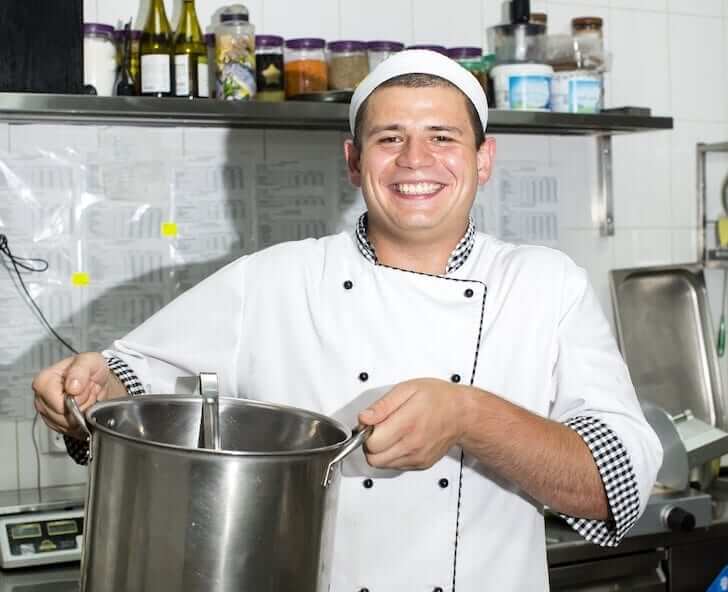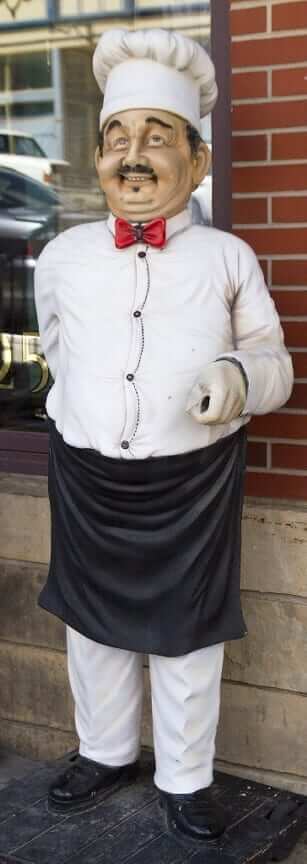How to Become a Saucier Chef
When diners enjoy a meal, they generally pay compliments to the head chef. Many are not aware that the flavors of a dish are, in part, decided by the saucier chef. A master of spice blends, the saucier chef is in charge of making the sauces, gravy and soups that make dishes delectable.

Duties of a Saucier
As the title suggests, the saucier is charged with the task of creating a variety of sauces. These are sauces served with dishes prepared by other chefs. Sauces can accompany appetizers, entrees and even desserts. This person reports to the Chef de cuisine.
A saucier should also know how to prepare stocks, broths and soups. Some establishments require the saucier to cook stews and pasta dishes for diners. You should also be able to sauté ingredients for the head chef and make sauces from the flavor left over in pan.
As a member of the kitchen brigade, a saucier is expected to adhere to the rules of their employer. This means upholding food safety regulations, keeping workstations clean and taking part in menu planning.
Saucier Training Requirements
A high school diploma or equivalent is the basic education requirement. While some aspiring saucier chefs prefer looking for work immediately afterwards, others choose to advance education with a Bachelor’s or Associate degree at a culinary school.
Obtaining a degree in the culinary arts does provide an advantage. However, hands-on kitchen experience is also valuable. It is therefore advisable to obtain both education and practical experience to increase your chances of being employed by a reputable establishment.
Qualities of a Good Saucier
In addition to education and experience, you must be able to work well with others. Teamwork is the cornerstone of a productive kitchen, which is why listening skills and a collaborative spirit are recommended.
A discerning palate is also essential. Because sauces are made from a variety of spices, herbs and ingredients, you must be able to detect and balance different flavors. Needless to say, creativity is another quality you need to have. Reputable restaurants are looking for someone who can add something new and fresh to their menu on a regular basis.
Being a saucier is a physically demanding occupation. You should be able to stay on your feet for the entire duration of a shift. Depending on the employer, shifts can be extended on busy nights and weekends. This is why physical and mental stamina is important.
Saucier Salary and Job Opportunities
Saucier salaries range between $20 000 and $40 000 per annum depending on the type, location and reputation of the employer. You can earn much more if you keep furthering your education in and outside of the kitchen.
Some saucier chef also venture into business. It is not uncommon for a saucier to create sauces and spice blends for retail. Some compose cookbooks for additional income and others extend their training to become head chefs. Because saucier chefs work so closely with executive chefs, the job market for this professional is very promising.




















